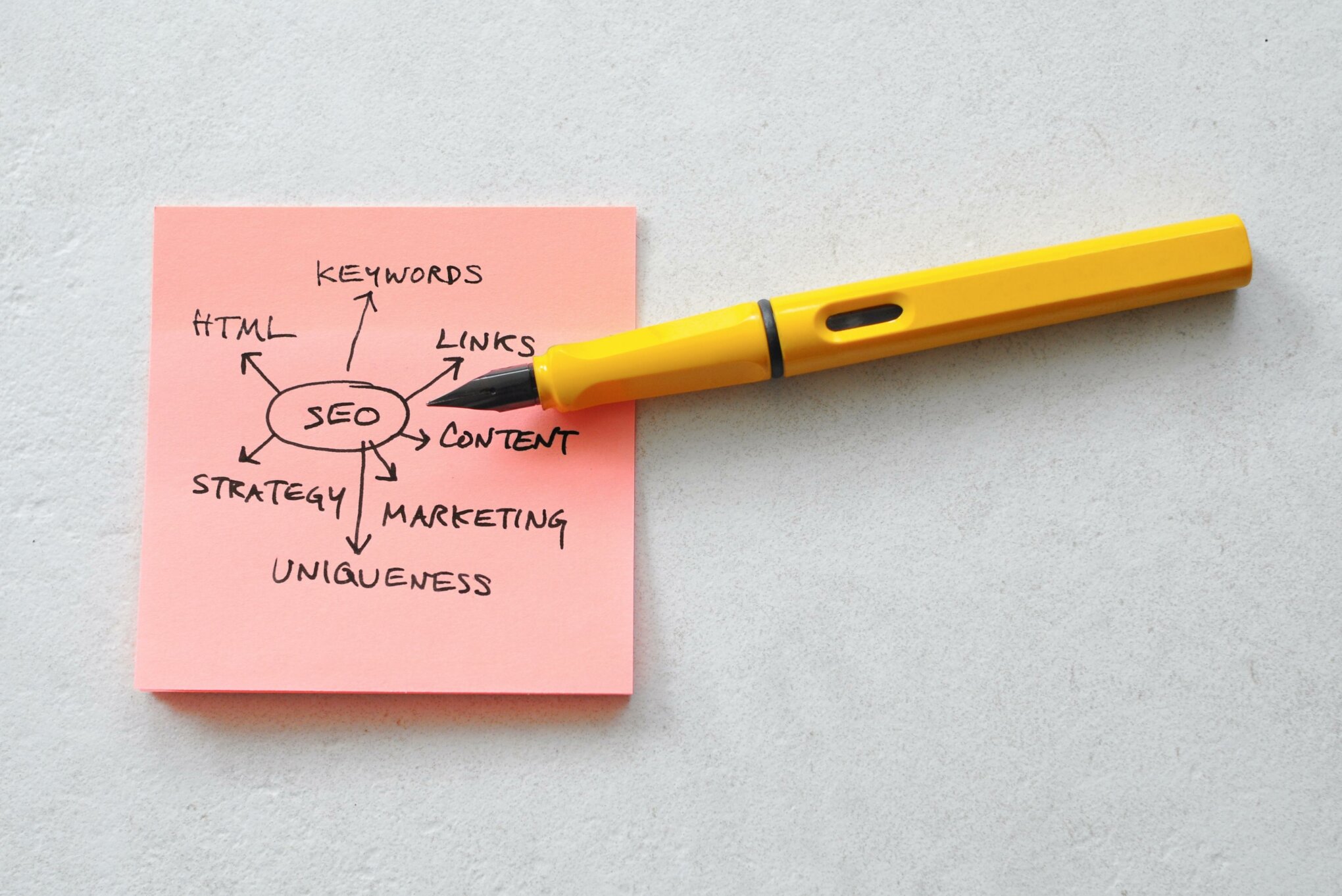Greetings readers, welcome to our professional blog! Are you eager to discover how to enhance your Google ranking? Look no further, as today we delve into the world of effective web design and its unparalleled potential in boosting your online presence. Join us to unravel the secrets behind creating a visually captivating and user-friendly website that not only captivates your target audience, but also impresses search engine algorithms. Get ready to unlock the pathway to higher rankings and greater online visibility!

Table of Contents
Toggle1. Enhancing Your Website’s Ranking: The Powerful Impact of Effective Web Design
The Powerful Impact of Effective Web Design on Enhancing Your Website’s Ranking
When it comes to improving your website’s ranking, implementing effective web design strategies can make a world of difference. While search engine optimization (SEO) techniques primarily focus on keywords, backlinks, and meta tags, web design plays an equally crucial role in attracting and engaging visitors. In fact, it can significantly impact your website’s visibility, usability, and overall user experience, ultimately leading to higher search engine rankings. Here, we’ll explore the various ways effective web design can enhance your website’s ranking, providing you with the tools you need to optimize your online presence.
1. Responsive Design
- Ensure your website layout adapts seamlessly to different screen sizes, ensuring a positive user experience across desktop, mobile, and tablet devices.
- Utilize responsive design frameworks or CSS media queries to create a fluid and dynamic user interface.
- Improve your website’s mobile-friendliness, as mobile optimization is crucial for both user experience and search engine rankings.
2. Intuitive Navigation
- Create a clear and intuitive navigation menu to help users find the information they’re looking for easily.
- Use meaningful labels for menu items and organize your content logically to enhance user satisfaction.
- Implement breadcrumbs to provide users with additional navigation options and improve the website’s overall structure.
By incorporating responsive design and intuitive navigation, you’re not only catering to your visitors’ needs but also sending positive signals to search engines. Remember, a well-optimized website isn’t just about keyword placement, but also about providing a seamless and enjoyable user experience. So, invest in effective web design to give your website the boost it needs and watch your rankings soar.
2. Unlocking the Secrets to Higher Google Rankings: How Web Design Can Make the Difference
In the competitive realm of online presence, achieving higher Google rankings is the ultimate goal for businesses and website owners. While search engine optimization (SEO) strategies play a crucial role, one often overlooked aspect is the impact of web design on these rankings. Effective web design can be a powerful tool in captivating users, promoting engagement, and ultimately boosting your website’s visibility on search engines.
A user-friendly and visually appealing design not only entices visitors to spend more time on your website but also encourages them to explore further. Implementing clear navigation and intuitive layout ensures seamless user experience, reducing bounce rates and improving the overall performance of your website. Additionally, optimizing your website for different devices and screen sizes through responsive design is vital, as mobile-friendly websites receive preferential treatment from search engines. To enhance your website’s SEO, integrating relevant keywords into the design elements such as headings, meta tags, and alt text for images can make a significant impact on search engine rankings. By adhering to web design best practices, you can unlock the secrets to gaining higher Google rankings and propel your online presence to new heights.
3. Elevate Your Google Ranking: Maximizing the Potential of Your Website Design
One crucial aspect of maximizing the potential of your website design is ensuring that it aligns with Google’s ranking criteria. By optimizing your website, you can significantly improve its visibility and reach a wider audience. Here are some key strategies to help elevate your Google ranking and make the most of your website design:
1. Responsive Design: Today, a large proportion of internet users access websites through mobile devices. Ensuring that your website is responsive and mobile-friendly is paramount. Google prioritizes websites that provide a seamless user experience across different devices. Implementing a responsive design not only improves your ranking but also makes your site more user-friendly, leading to a lower bounce rate and increased engagement.
2. Page Load Speed: In today’s fast-paced digital world, users have little patience for slow-loading websites. Google recognizes this and considers page load speed as a crucial factor in ranking websites. Optimizing your website’s images, using caching techniques, and reducing unnecessary code can help to enhance page load speed. Make sure to regularly monitor your site’s performance using tools like Google PageSpeed Insights to identify areas for improvement.
3. User-Friendly Navigation: A well-organized website with intuitive navigation is key to enhancing the user experience and increasing the time spent on your site. Utilize clear and concise headings, implement a logical menu structure, and include internal linking to help users find relevant content easily. Google recognizes that a seamless user experience leads to better engagement and rewards such websites with higher rankings.
4. Quality Content: Content is king in the digital realm. Producing high-quality, relevant, and unique content is crucial for both engaging users and improving your Google ranking. Include strategic keywords in your content, ensuring they are naturally incorporated and not overused. Additionally, utilize headings, subheadings, and bullet points to break up the text, making it easier for users to scan and find the information they need.
Remember, elevating your Google ranking goes hand in hand with delivering an exceptional user experience through your website design. By focusing on responsiveness, page load speed, navigation, and content, you can optimize your website to meet Google’s criteria and ensure it stands out among the competition.
4. The Art of Google Ranking: Unleashing the Power of Strategic Web Design
There is no denying that Google ranking plays a pivotal role in the success of any website. However, achieving a high-ranking position requires more than just luck or guesswork. It requires the art of strategic web design. Strategic web design involves a comprehensive approach that combines aesthetics, user experience, and search engine optimization (SEO) techniques to optimize a website for maximum visibility and organic traffic.
One key aspect of strategic web design is the inclusion of relevant keywords. By conducting keyword research and strategically placing them throughout your website’s content, meta tags, and headings, you can significantly improve your chances of ranking higher in Google search results. Additionally, incorporating intuitive navigation and ensuring mobile responsiveness can enhance the user experience, ultimately boosting your website’s ranking.
Furthermore, a successful strategy must consider the importance of engaging and shareable content. High-quality blog posts, articles, and videos not only provide valuable information to your target audience but also increase the likelihood of earning backlinks and social media mentions. Leveraging social media platforms to promote your content and engage with your audience can further amplify your website’s visibility and improve its Google ranking. Implementing these strategic web design principles will undoubtedly empower your website to rise through the ranks and unlock its full potential on the World Wide Web.
5. Mastering Google Rankings with Effective Web Design: Boost Your Website’s Visibility
In today’s digital age, having a visually appealing website is essential for any business looking to thrive online. However, effective web design goes beyond just aesthetics; it directly impacts your website’s visibility on search engines like Google. To master Google rankings and boost your website’s visibility, there are several key factors to consider when designing your website:
1. Responsive Design: With the rapid increase in mobile usage, having a responsive website is crucial for Google rankings. Ensure that your website is mobile-friendly and adapts seamlessly to different screen sizes, providing users with a positive browsing experience.
2. User-Friendly Navigation: Google values websites that are easy to navigate and provide a smooth user experience. Implement clear and intuitive navigation menus, allowing visitors to navigate through your website effortlessly. Incorporate drop-down menus or breadcrumb navigation for hierarchical organization of your content.
3. Page Loading Speed: Slow loading times can negatively impact user experience and ultimately lower your search engine rankings. Optimize your website’s loading speed by compressing images, minifying CSS and JavaScript files, and leveraging browser caching. Remember, every second counts!
4. High-Quality Content: Content is king when it comes to Google rankings. Ensure that your website has well-written, informative, and engaging content that is relevant to your target audience. Use appropriate headings and subheadings, making it easier for both users and search engines to understand.
5. Keywords and Metadata: Conduct thorough keyword research and strategically incorporate relevant keywords throughout your website’s content, URLs, metadata, and image alt tags. This will improve your website’s visibility in search engine results pages (SERPs) and increase the likelihood of attracting organic traffic.
By incorporating these effective web design practices, not only will you enhance your website’s visibility on Google but also provide users with an exceptional browsing experience. Remember, a well-designed website will not only attract more traffic but also convert visitors into loyal customers. Stay ahead of the competition and start optimizing your website today!
Q&A
Q: Why is having a high Google ranking important for businesses?
A: Having a high Google ranking is crucial for businesses as it ensures their website appears at the top of search engine results pages (SERPs). The majority of users tend to click on the top results, increasing the chances of attracting organic traffic. This improved visibility translates into more website visits, potential customers, and ultimately leads to higher conversion rates and revenue.
Q: Can effective web design really boost my website’s Google ranking?
A: Absolutely! Effective web design plays a significant role in enhancing your website’s Google ranking. Search engines value sites that provide a positive user experience, and this starts with a well-designed and visually appealing website. An optimized design, incorporating elements such as intuitive navigation, fast loading speeds, mobile responsiveness, and engaging content, all contribute to a better user experience. Consequently, search engines will recognize your site’s value and reward it with a higher ranking.
Q: How does mobile responsiveness affect Google ranking?
A: Mobile responsiveness is a major factor in Google’s ranking algorithm. With the increasing number of users accessing the internet via mobile devices, Google prioritizes websites that provide a seamless experience across all screen sizes. A mobile-friendly website adjusts its layout and content to fit various screens, ensuring ease of navigation and readability. By implementing a responsive web design, your website will improve its chances of ranking higher in mobile search results, ultimately increasing its overall visibility.
Q: Can website loading speed impact my Google ranking?
A: Absolutely! Website loading speed is seen as an important ranking factor by Google. Users expect websites to load quickly, and if your site takes too long to load, they may abandon it and visit a competitor’s site instead. Google recognizes this and, as a result, prioritizes websites with faster loading speeds in its search results. To boost your Google ranking, optimize your site’s loading speed by compressing images, eliminating unnecessary scripts, and using cache plugins.
Q: How can website navigation impact Google ranking?
A: Website navigation is a critical component of effective web design and can significantly impact your Google ranking. Clear and intuitive navigation helps visitors easily find the information they are seeking, encouraging them to stay longer on your site. Search engines consider the time spent on a website as an indication of its relevance and usefulness. By designing a website with clear navigation menus, logical hierarchy, and well-organized content, you will improve user experience, increase engagement, and ultimately improve your Google ranking.
Q: Is content also a factor in improving Google ranking through web design?
A: Absolutely! Content is a major ranking factor and should not be overlooked when considering web design. High-quality content that is informative, engaging, and relevant to the user’s query helps your website rank better in search results. When designing your website, ensure that the layout and formatting of your content are appealing and easily readable. Use headings, subheadings, bullet points, and appropriate imagery to break up the text and improve the user experience. Search engines will recognize well-structured, valuable content and reward your website with a higher ranking.
Q: Are there any other web design elements to consider for boosting Google ranking?
A: Yes, there are a few more web design elements to consider. Firstly, ensure that your website is secure by implementing HTTPS encryption, as secure sites are preferred by search engines. Additionally, incorporate social media integration so that users can easily share your content, improving its visibility and driving more traffic to your website. Lastly, optimize your website for local SEO by including location-specific keywords, address information, and a Google My Business listing to improve your visibility in local search results.
Remember, effective web design is a continuous process, and regularly updating and optimizing your website will maximize its potential to boost your Google ranking. In conclusion, effective web design holds immense potential in boosting your Google ranking and becoming a key player in the digital arena. By implementing a user-focused approach, optimizing site speed and mobile responsiveness, incorporating relevant keywords, and prioritizing quality content, you can establish a robust online presence that not only resonates with your target audience but also impresses search engine algorithms. Remember, the digital landscape is constantly evolving, and staying up to date with the latest trends and best practices in web design is crucial for achieving and maintaining a high Google ranking. So, invest wisely in your website’s design, and watch your online visibility soar, catapulting your business to new heights.




